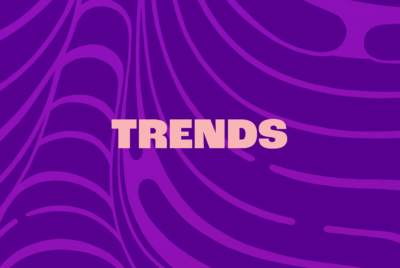As the population ages, technology grows and consumer behaviors across all ages and demographics evolve, healthcare retailers, suppliers and providers recognize that they are not immune to change. Attendance at the recent National Association of Chain Drug Stores (NACDS) Total Store Expo exceeded expectations and far surpassed last year, indicating that one, business is back after the COVID years, and two, the healthcare retail industry is hungry for innovation, new products and services — and new ways to deliver those to consumers.
Here are some of the key trends and hot topics facing the healthcare industry, according to Tom Moran, vice president of beauty, health and wellness, Advantage Solutions, whose team represents healthcare product companies and works with retail drug chains and pharmacies.
- Healthcare is becoming self-care.
More and more, consumers are demanding convenience when it comes to healthcare — and that often translates into innovations like online prescription pickup and delivery, telemedicine and health subscription services. “The industry’s seen a real pivot here and consumers are moving away from brick-and-mortar healthcare,” says Moran. “If they think they might be sick, they don’t want to go to a doctor or the drugstore. They want to take a simple test at home in 30 seconds that tells them what they want to know.” Moran also foresees the growth of digital and telemedicine through subscriptions where users will, for example, pay a flat fee every month for a menu of health services.
- Aging in place. As America gets older, how do we keep loved ones at home and care for them? How will we access the products and information we need to support that? Today’s aging population — many of whom are the Baby Boomer generation — stand to leave behind trillions of dollars when they die. More and more of these people are choosing to age in place, at home with their families, not only for their personal comfort and well-being but also to protect their financial assets from being drained by nursing homes and assisted living facilities.“I’m not saying that people are keeping their older relatives at home only out of greed, but it has caused people to think differently about how you can care for them in their own home, and how to ensure that you treat them with dignity,” says Moran. “That will have a significant impact on the healthcare industry going forward.”
- Food as medicine. The growing food-as-medicine movement, which is a pillar of Kroger Health’s initiatives, is based on the principle that helping people access nutritious food could have a significant impact on healthcare by increasing awareness, understanding and empowerment to help them make good, healthy choices. Nutritional disparities should be addressed early from a disease prevention standpoint — especially conditions affected by poor nutrition such as heart disease, stroke, diabetes and cancer.
- Closing the gender gap. The health and wellness segment needs to address unmet needs for female consumers in everything from thinning hair, diet and nutrition to sexual wellness and personal hygiene. A panel session at NACDS highlighted the gap in women’s health areas in terms of funding and research, how the industry needs to break the taboo of certain life-stage transitions like menopause and called on both retailers and manufacturers to advance women’s topics in the market. For instance, PMS — which affects 90% of women — has a fifth of the R&D investment that erectile dysfunction (ED) has. Yet ED impacts only 19% of men.
- AI and emerging technologies. Forget all of the predictions you may have heard about the coming of AI — artificial intelligence is already here, and retailers need to get onboard or be left behind. Retailers are struggling because they are not keeping up with customers’ changing needs, but some are now learning that AI allows them to understand customer needs in real time.“There are a lot of ways that AI can make an impact if we would just embrace the technology,” says Moran. “For example, as retailers advance supply chain technology and AI, there probably won’t be a cash transaction until after the sale, meaning at some point retailers won’t pay for product until it’s taken home. We can use technology to start scanning stores and judging them against compliance, and we can help start scorecarding their performance in the marketplace. There is so much data out there, but nobody has the resources to go through it all. AI will help with all of that.”
Moran sees these changes as opportunities for the healthcare industry, as well as for Advantage’s healthcare business.
“Drugstore chains have consolidated, and there are now just a handful of major chains,” he says. “But now we’re also selling to other players in the field, like the group purchasing organizations (GPOs), urgent care, flexible spending accounts (FSAs), the Optums and Humanas and Express Scripts of the world. There are a lot of avenues for the services and products we provide.
“Our role in the industry is to look at all of these trends and data points and help guide our clients to the right future.”




